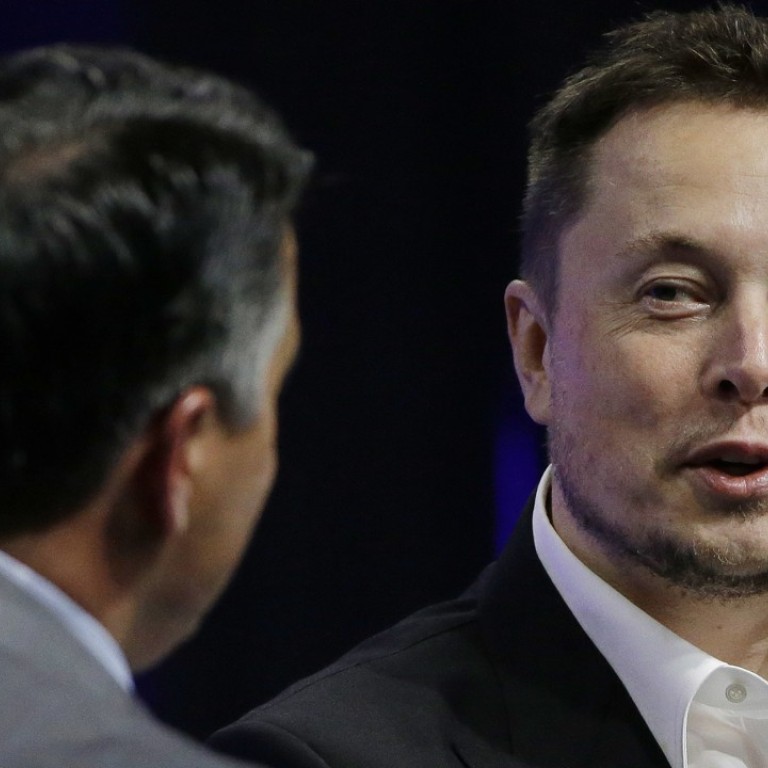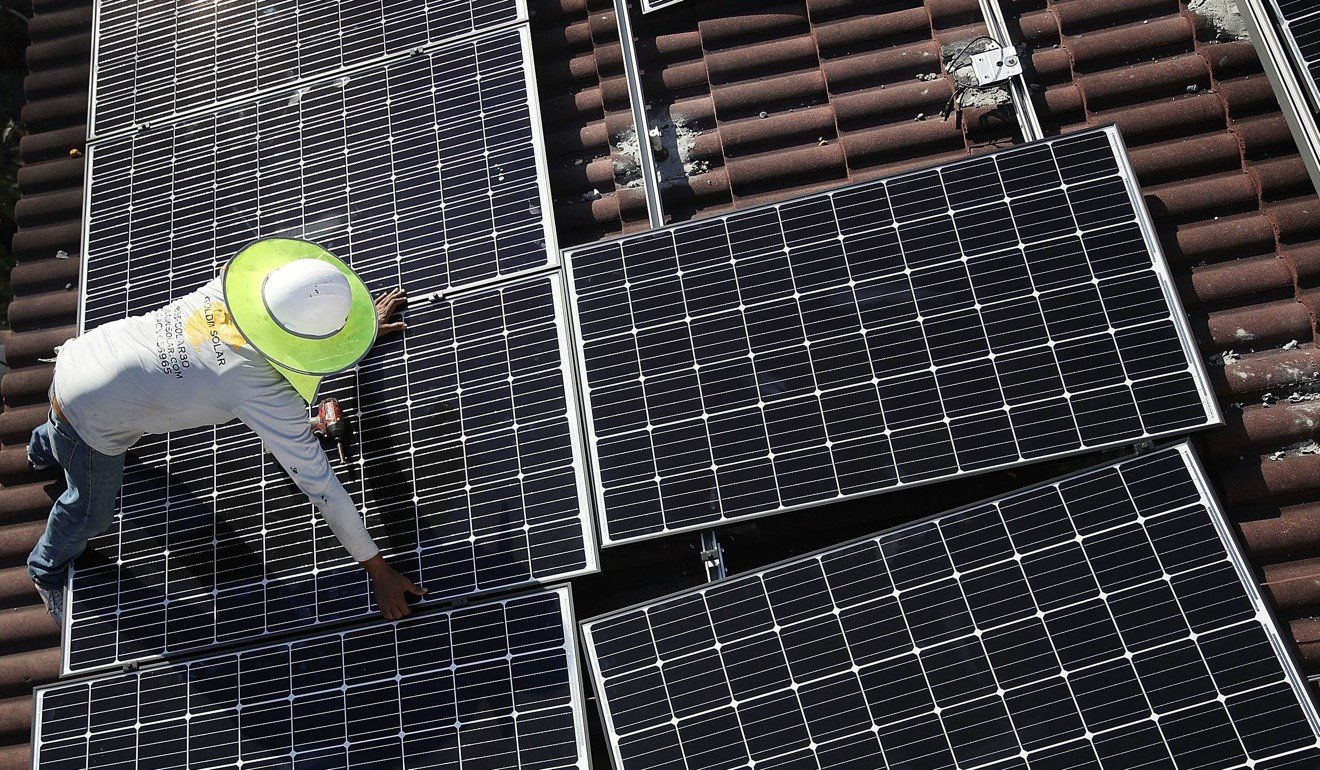
Tesla unaffected by Donald Trump’s solar tariff thanks to crafty fine print
Electric vehicle maker and solar installer Tesla said it does not expect President Donald Trump’s solar tariff to have much impact on its hi-tech solar manufacturing ambitions, thanks to a clause exempting a vast amount of solar panel components from the levies.
Trump’s order, signed into law on Tuesday, imposes a 30 per cent tariff on fully assembled imported solar panels as well as the cells of which the panels are made – a move intended to protect American jobs but which the solar industry worries will raise costs and trigger thousands of lay-offs.
But in a twist destined to help the California company, the solar cell tariff only kicks in after 2.5 gigawatts worth hit US shores each year.

Tesla uses solar cells in its nascent solar roof tile business. The tiles generate electricity without the need for a traditional panel.
The company also has plans to build conventional panels using imported cells for its US-based residential installation business, which it also hopes to grow over the coming years.
Tesla expects to be able to import foreign cells for its tile and panel businesses free of tariffs thanks to the large exemption for cells, a source familiar with the company’s operations said on Tuesday.
Only 500MW worth of solar cells were imported into the United States in total last year, according to the Solar Energy Industries Association - that’s a fifth of what is being exempted from Trump’s tariff.
Baird analyst Ben Kallo agreed the tariff was generally positive for Tesla as it will make its domestic products more competitive with imports – though he noted its installation business will pay higher prices for imported panels in the short term.
Tesla had been part of a group of domestic manufacturers that lobbied against tariffs on solar products.

